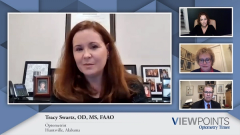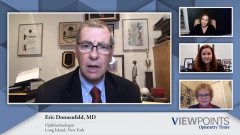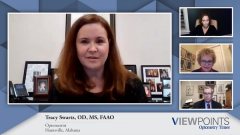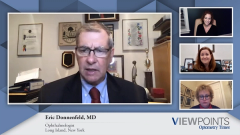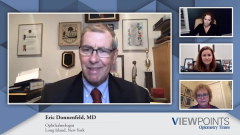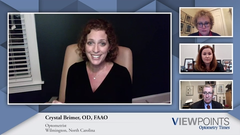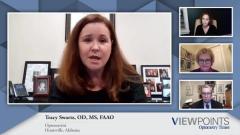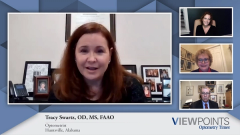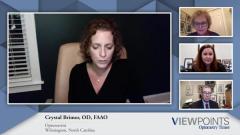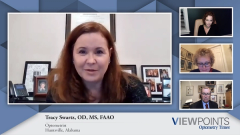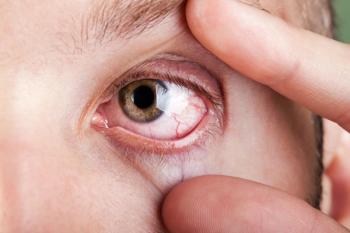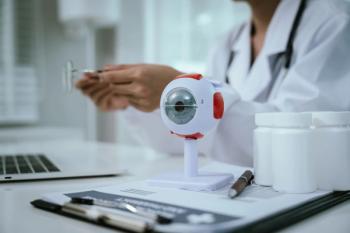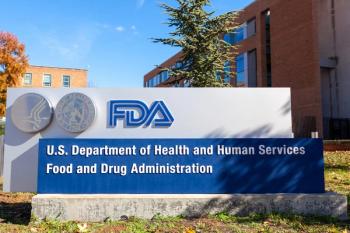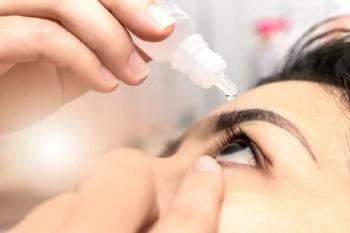
OD and MD communication for optimal care
Episodes in this series

Marguerite McDonald, MD: Eric, it’s back to you. What do MDs [physicians] want from referring optometrists?
Eric Donnenfeld, MD: That’s a great question, and I want to preface those remarks, Marguerite, by saying that if there’s one area where optometry and ophthalmology can work well together, it’s probably dry eye disease. I want to congratulate Ophthalmology Times® for bringing this webinar together and bringing 2 excellent optometrists to join you, Marguerite, and myself here today. It’s really a pleasure listening to their expertise and to learn from them as well.
To answer your question, I think that this is a place where we can really work together to benefit the patient. If you’re treating dry eye in your office, it’s very good to work with ODs [optometrists] in your office to manage dry eye. If you’re not managing dry eye in your office, and there are a lot of ophthalmologists who just don’t have an interest in managing dry eye, I think it is a tremendous service to bring in a dedicated OD whose desire is to manage dry eye, because by not treating dry eye, you’re really not serving your patient population well. There are many practices like Marguerite’s and mine where we work with optometry, and there are many practices where the ophthalmologist will say, “I don’t have any interest in managing dry eye, but I want to refer to someone in the practice and capture those patients and treat them.” It’s great for patient care, it’s also good for the bottom line of the practice as well.
When I comanage patients in my practice, what I’m looking for in my referring optometrist is, did they do a thorough dry eye screening before the patient comes to see me for, commonly, LASIK or for cataract or for corneal surgery? There’s nothing more frustrating to a patient or to the doctor for that matter, than seeing a patient who comes in, and I find that they have significant dry eye that requires intervention and therapy that’s going to require a second visit back to me before I can do the appropriate testing for cataract or for refractive surgery. What I want from my screening referring ODs is for them to do a thorough dry eye exam. I want them to do staining of the cornea and conjunctiva, I want them to look at the tear film break-up time, and I want them to treat. I want them to treat aggressively, I want them to optimize the ocular surface. And there are a variety of therapies that I call rapid rehabilitation therapies that can bring patients back to a pristine ocular surface in a matter of days to weeks rather than weeks to months. I’m looking for the ODs that I work with to incorporate these ideas into their practice, to manage dry eye before they refer them to me, so that we can work together to give the patient the optimal experience and the best visual rehabilitation.
Marguerite McDonald, MD: Eric, among nonsurgical patients, what are the findings that should trigger referral from an OD to an MD?
Eric Donnenfeld, MD: Well, I think that ODs who are dedicated to dry eye, like my colleagues here tonight, can manage most dry eye disease fairly effectively. I think the time that a referral might be indicated is when you have actual ulceration or breakdown of the ocular surface, when you have a loss of visual acuity, when you start seeing neovascularization coming into the visual axis due to chronic ocular surface disease, where it’s good to get a second opinion and to think of other therapies that might be needed. Patients who have had previous corneal transplants have greater risk of dry eye disease, and there are many syndromes that are associated with dry eye disease, that I think it’s good for optometry and ophthalmology to work together. But for the great variety of mild to moderate dry eye, I think this is something that optometry does a great job of managing better, and in some ways, they manage them better than ophthalmology does.
Marguerite McDonald, MD: Thank you, Eric. Crystal, what do ODs want from MDs?
Crystal Brimer, OD, FAAO: I personally want open communication and support, and I want validation to the patient. I have to give a shout out, I’m so thankful for the ophthalmologists we have in our town. Five of my biggest referral sources are ophthalmologists, and it’s just what you said, Eric, they can do it. But I’ve got more equipment, and they don’t want to do it. There are other things they want to spend their time on. But I’m so proud of them and appreciative because they realize that someone has to do more, and the reality is I’m not that patient’s primary OD. Someone else is. Yet they’re still sending to me, and it’s mainly out of the trust that I’m not going to take advantage of that. I’m not going to try to steal that patient from the original OD who sent them to the ophthalmologist. We have such a great system of open communication. I’m going to do my thing, I’m going to treat the dry eye, do it aggressively, and I’m going to make sure they’re going back to that original optometrist. I do that out of respect for the optometrist, but also the ophthalmologist who sent them to me, because if I didn’t do that, that would ruin everything. I’m very adamant about that.
I think one thing I really appreciate is when it comes to cataract surgery, they recognize, alright, they need more dry eye treatment, and then it’s a little bit hands off, “just send them back to me when they’re ready.” Or if there’s a need to cancel a cataract surgery because the cornea is not ready, there are no questions asked, there are no issues. It’s a complete trust of each other of saying, “OK, we’ve got the patient’s best interest at heart, and we’re going to do whatever it takes to get them there as quickly as possible, but with the best outcome as possible.”
Newsletter
Want more insights like this? Subscribe to Optometry Times and get clinical pearls and practice tips delivered straight to your inbox.





